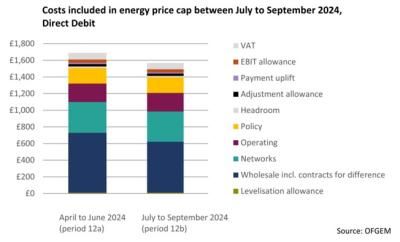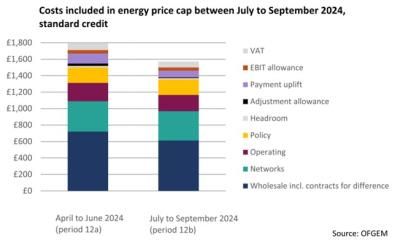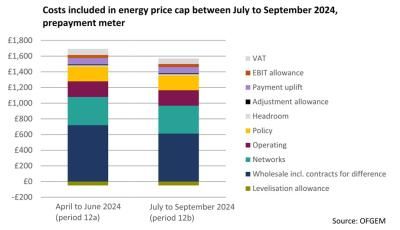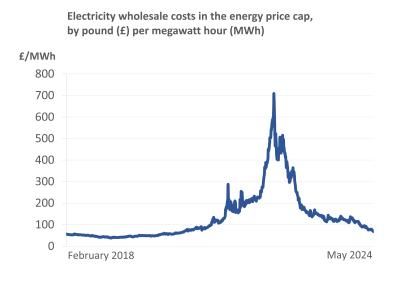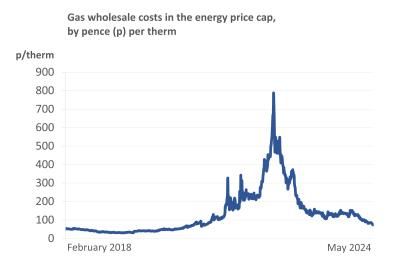Energy price cap for July to September confirmed
- Content:
- Press release
- Publication date:
- Topic:
- Energy pricing rules
- Sub Topic:
- Energy price cap
- Industry sector:
- Supply and Retail Market
Energy regulator Ofgem has today (Friday 24 May, 2024) confirmed the energy price cap for the third quarter of 2024.
The price cap, which sets a maximum rate per unit that can be charged to customers for their energy use, will fall by 7% from 1 July to 30 September 2024, compared to the previous quarter. For an average household paying by direct debit for dual fuel this equates to £1,568, a drop of £122 over the course of a year.
The average household paying by prepayment meter for dual fuel will pay £1,522 over the course of a year. The average household paying for dual fuel by standard credit will pay £1,668 over the course of a year.
The price cap set by Ofgem assumes a standing charge of £334 for a dual fuel customer (£369 for those who pay by standard credit). This is unchanged from the last price cap period.
Suppliers may offer a lower standing charge for their default tariffs under the price cap but to raise the unit rate above that assumed in Ofgem’s price cap, they need to demonstrate that the overall amount charged to consumers is at or below the total price cap.
Suppliers are free to offer fixed tariffs with a different balance of standing charges and unit rates and many do so.
Notes To Editors
The energy price cap was introduced by the government and has been in place since January 2019, and Ofgem is required to regularly review the level at which it is set. It ensures that an energy supplier can recoup its efficient costs while making sure customers do not pay a higher amount for their energy than they should. The price cap, as set out in law, does this by setting a maximum that suppliers can charge per unit of energy.
Updated number of customers on different tariff types as of April* 2024
New number of customers on Standard Variable Tariffs (SVT) – ‘around 28 million’ of which:
- new number of SVT Direct Debit customers – ‘around 18 million’
- new number of SVT Standard Credit customers – ‘around 5 million’
- new number of SVT PPM customers – ‘around 4 million’
Total number of customers on fixed tariffs ‘around 4 million’ (with the vast majority being non-PPM)
*Latest Financial Responsibility RFI data is for April-24. Tariff and customer Account RFI data is as of April-24 (used to calculate the SVT payment splits).
